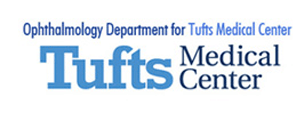 If you’re thinking about having cataract surgery, it’s important to know what to expect from the surgery, as well as the recovery period. One question you may be considering is if you are able to drive yourself home after cataract surgery. While cataract surgery is a simple procedure that only takes about thirty minutes, keep reading to learn why you can’t drive on the day you undergo cataract surgery.
If you’re thinking about having cataract surgery, it’s important to know what to expect from the surgery, as well as the recovery period. One question you may be considering is if you are able to drive yourself home after cataract surgery. While cataract surgery is a simple procedure that only takes about thirty minutes, keep reading to learn why you can’t drive on the day you undergo cataract surgery.
Anesthesia
When you get cataract surgery, you will be sedated with anesthesia. Although you will be awake during the surgery, the sedation can take some time to wear off. As a result, general medical standards state that it is dangerous to operate machinery while under the effects of anesthesia. To get home safely, you should plan to have someone drive you to and from surgery. You also shouldn’t drive for twenty-four hours after your surgery to ensure the effects of anesthesia have completely worn off. After cataract surgery, your surgeon will let you know when you are cleared to drive again.
Vision After Cataract Surgery
Twenty four hours after surgery, the anesthesia should have fully worn off. However, if you feel like it may still be impairing your motor functions, or you’re just not sure, it’s safer to refrain from driving for a few days. Even though cataract surgery removes your cataract and improves your vision, the day after surgery your vision might be hazy. You may also experience heightened sensitivity to light, which makes driving dangerous. After cataract surgery, you may also have difficulty driving at night, due to halos and glare from oncoming headlights. These effects can take a few weeks to go away, so refrain from driving if you feel unsafe behind the wheel of a car.
Vision During Recovery
Recovering from cataract surgery can take about eight weeks, though it depends on the patient. As a result, during the recovery process, patients need to take it easy! This means limiting yourself to light activities, and avoiding any heavy lifting. You should also be aware of how your vision has improved now that your cataracts have been removed. It’s normal for your everyday vision to seem fuzzy, since your prescription may have changed. While you’re recovering and following up with your doctor after surgery, discuss how you’re seeing and if anything feels like it still isn’t quite clear. You may need a new pair of glasses or contacts. Because of this, make sure you’re careful about driving even after your post-surgery sensitivity improves, as you still may not be seeing well enough to drive. Your doctor at New England Eye Center can help you determine whether or not your prescription has changed. If you’re unsure, it’s best to stay off the road until your prescription has been updated. Once you’re recovered and you have the right prescription, you can get back on the road!
Want to learn more about cataract surgery? Contact New England Eye Center today to schedule an appointment at one of our locations.




